Background
Menahem Begin was born on August 16, 1913, in Brest, Brestskaya Voblasts', Belarus to Zeev Dov Begin and Hassia Begin. He was the youngest of three children. His father was a timber merchant.

1932
Menachem Begin (top center) with his parents, his sister Rachel, and his brother Herzl in Poland, 1932
1939
Menachem Begin reviews a Betar lineup in Poland in 1939. Next to him is Moshe (Munya) Cohen
1940
NKVD mugshots of Menachem Begin, 1940
1946
Menachem Begin in the guise of "Rabbi Sassover" with wife Aliza and son Benyamin-Zeev, Tel Aviv, December 1946
1948
Menachem Begin with Irgun members
1948
Menachem Begin
1974
Menachem Begin addressing the Knesset
1977
Prime Minister Menahem Begin (left) meets with Agriculture Minister Ariel Sharon at the Prime Minister's Office in Jerusalem. August 1977
1978
Prime Minister Menachem Begin engages Zbigniew Brzezinski in a game of chess at Camp David, 1978
1978
Egyptian President Anwar Sadat and Menachem Begin acknowledge applause during a joint session of Congress in Washington, D.C., during which President Jimmy Carter announced the results of the Camp David Accords, 18 September 1978
1978
Menachem Begin
1978
Anwar Sadat, Jimmy Carter, and Menachem Begin(From left) Egyptian Pres. Anwar Sadat, U.S. Pres. Jimmy Carter and Israeli Prime Minister Menachem Begin signing the Camp David Accords at the White House, Washington, D.C., September 17, 1978
1978
U.S. President Jimmy Carter overseeing a discussion between Israeli Prime Minister Menachem Begin (left) and Egyptian President Anwar el-Sādāt (right) at Camp David, Maryland, September 1978
1979
U.S. Pres. Jimmy Carter (second from left), Israeli Prime Minister Menachem Begin (left), and Egyptian Pres. Anwar Sadat clasping hands on the White House lawn after the signing of the peace treaty between Israel and Egypt, March 26, 1979
Warszawa, Poland
University of Warsaw
Hashomer Hatzair Movement Logo
The Betar Movement Logo
Irgun Logo
Nobel Peace Prize
Knesset Emblem
Ministry of Defense Emblem
Palestine Police Force wanted a poster of Irgun and Lehi members. Menachem Begin appears at the top left
Menahem Begin and Moshe Dayan exit from an aircraft at Andrews Air Force Base, Maryland, United States













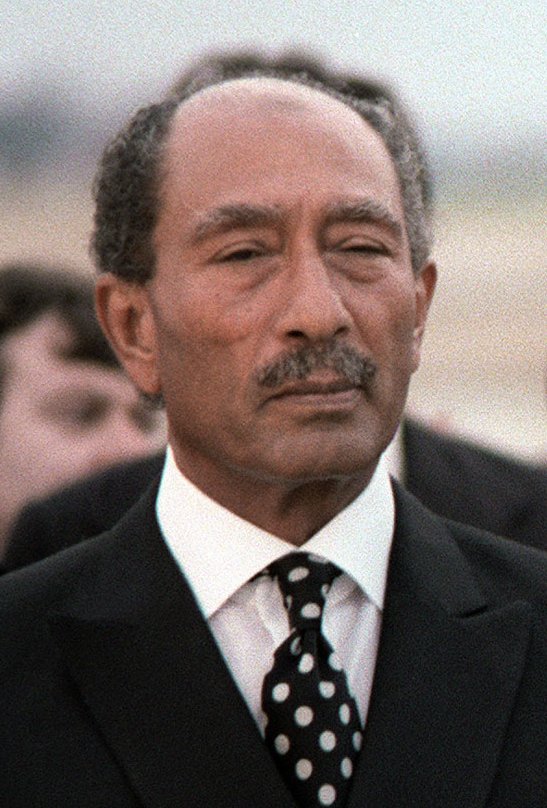
Menahem Begin was born on August 16, 1913, in Brest, Brestskaya Voblasts', Belarus to Zeev Dov Begin and Hassia Begin. He was the youngest of three children. His father was a timber merchant.
After a year of a traditional cheder education, Menahem Begin started studying at a "Tachkemoni" school, associated with the religious Zionist movement.
Menahem Begin studied law at the University of Warsaw, where he learned the oratory and rhetoric skills that became his trademark as a politician and viewed as demagogy by his critics.
Active in the Zionist movement throughout the 1930s, Menahem Begin became (1938) the leader of the Polish branch of the Betar youth movement, dedicated to the establishment of a Jewish state on both sides of the Jordan River.
When the Germans invaded Warsaw in 1939, Menahem Begin escaped to Vilnius; his parents and a brother died in concentration camps. The Soviet authorities deported Begin to Siberia in 1940, but in 1941 he was released and joined the Polish army in exile, with which he went to Palestine in 1942.
Menahem Begin joined the militant Irgun Zvai Leumi and was its commander from 1943 to 1948. After Israel’s independence in 1948, the Irgun formed the Ḥerut ("Freedom") Party with Menahem Begin as its head and leader of the opposition in the Knesset (Parliament) until 1967. He joined the National Unity government (1967-1970) as a minister without portfolio and in 1973 became joint chairman of the Likud ("Unity") coalition.
On May 17, 1977, the Likud Party won a national electoral victory and on June 21 Menahem Begin formed a government. He was perhaps best known for his uncompromising stand on the question of retaining the West Bank and the Gaza Strip, which had been occupied by Israel during the Arab-Israeli War of 1967. Prodded by U.S. President Jimmy Carter, however, Menahem Begin negotiated with President Anwar el-Sādāt of Egypt for peace in the Middle East, and the agreements they reached, known as the Camp David Accords (September 17, 1978), led directly to a peace treaty between Israel and Egypt that was signed on March 26, 1979. Under the terms of the treaty, Israel returned the Sinai Peninsula, which it had occupied since the 1967 war, to Egypt in exchange for full diplomatic recognition. Menahem Begin and Sādāt were jointly awarded the Nobel Prize for Peace in 1978.
Menahem Begin formed another coalition government after the general election of 1981. Despite his willingness to return the Sinai Peninsula to Egypt under the terms of the peace agreement, he remained resolutely opposed to the establishment of a Palestinian state in the West Bank and Gaza Strip. In June 1982 his government mounted an invasion of Lebanon in an effort to oust the Palestine Liberation Organization (PLO) from its bases there. The PLO was driven from Lebanon, but the deaths of numerous Palestinian civilians there turned world opinion against Israel. Israel’s continuing involvement in Lebanon, and the death of Begin’s wife in November 1982, were probably among the factors that prompted him to resign from office in October 1983.
Begin's most significant achievement as Prime Minister was the signing of a peace treaty with Egypt in 1979, for which he and Anwar Sadat shared the Nobel Prize for Peace. In the wake of the Camp David Accords, the Israel Defense Forces (IDF) withdrew from the Sinai Peninsula, which was captured from Egypt in the Six-Day War. Later, Begin's government promoted the construction of Israeli settlements in the West Bank and the Gaza Strip.
Menachem Begin was said to have a radical nationalistic agenda. Begin's Herut party was described as a "terrorist, right-wing chauvinist organization in Palestine," "closely akin in its organization, methods, political philosophy and social appeal to the Nazi and Fascist parties". The British government regarded him as "leader of the notorious terrorist organization Irgun".
Quotations: "During the Holocaust, our people were not decimated, but "tertiated" - it was not one in ten, but one in three that were murdered."
As his family was killed during the Holocaust, Menahem Begin was a strong opponent of nazism.
Despite being a leader of the right-centered Likud Party, Begin signed a peace treaty with Egypt in 1979. After his resignation, he also became disappointed by the war in Lebanon because he had hoped to sign a peace treaty with the government of President Bashir Gemayel.
Menahem Begin was married to Aliza Arnold and had 1 son and 2 daughters.
Zeev Dov Begin was a timber merchant, was a community leader, a passionate Zionist, and an admirer of Theodor Herzl. He died during WW2.
Hassia Begin died during WW2.
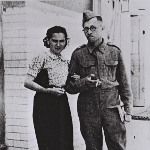
Aliza Arnold died in November 1982.

Herzl Begin died during WW2.
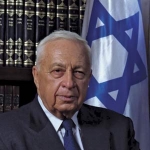
Together with Menahem Begin founded Likud Party.
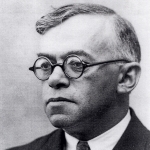
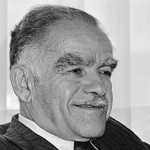
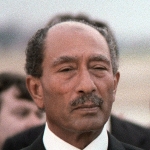
Signed a peace treaty with Egypt in 1979.
